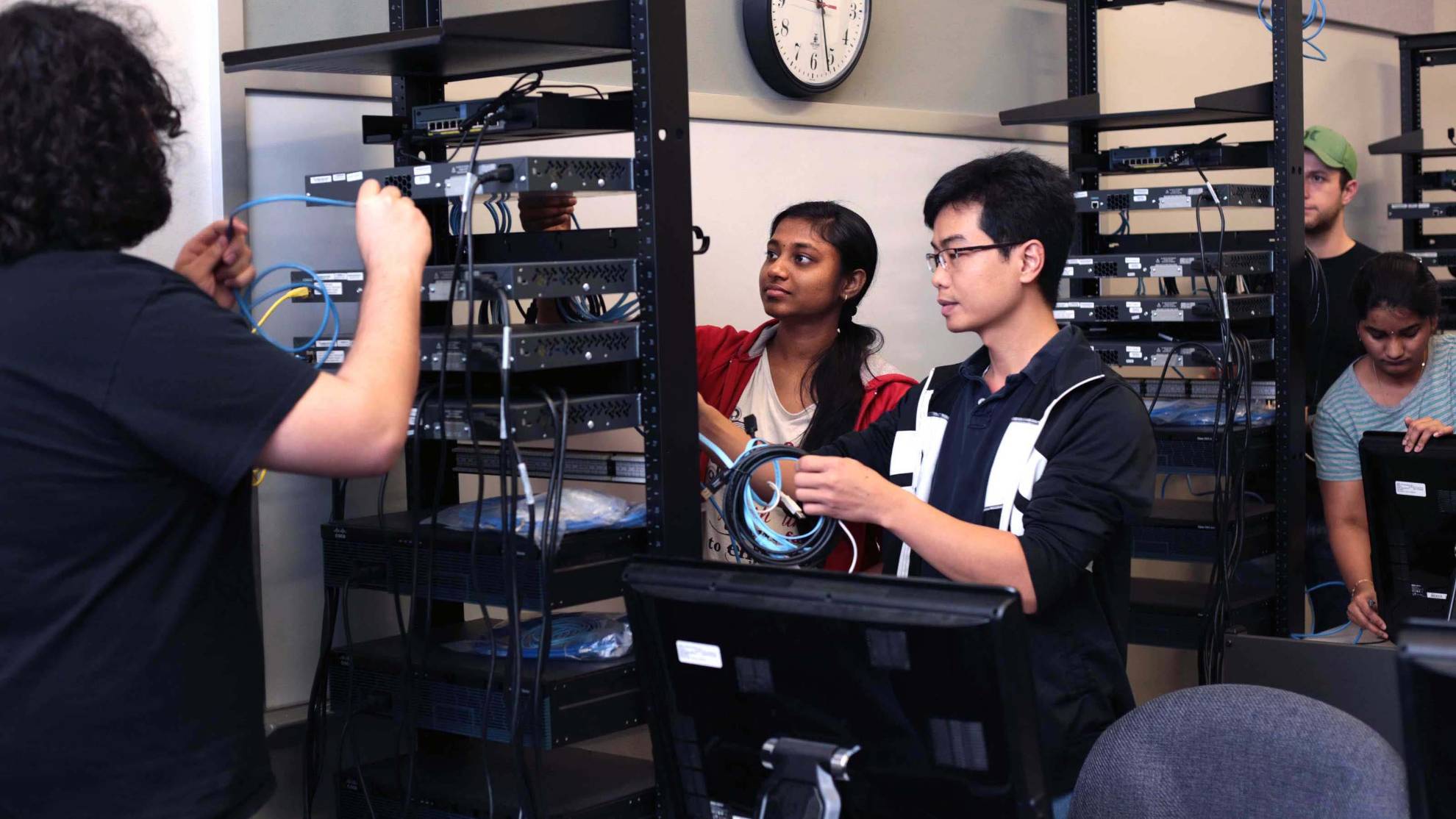- Future Students
- How to Apply
- Visit UHCL
- Admitted Students
- Tuition, Costs and Aid
- Degrees and Programs
- Contact Admissions
- Current Students
- Class Schedule
- Academic Calendar
- Advising
- Events
- Library
- Academic Resources and Support
- Student Services and Resources
- Alumni
- Lifetime Membership
- Alumni Events
- Update Your information
- Awards and Recognitions
- Give to UHCL
$2.5M NSF grant funds 5-year UHCL initiative in engaged learning
October 17, 2019 | Jim Townsend

What does it take to keep an academically challenged student in college and on the path to a degree and career in science, technology, engineering or mathematics? University of Houston-Clear Lake’s College of Science and Engineering intends to find out, with assistance from a $2.5 million National Science Foundation grant.
The NSF’s Building Capacity in STEM Education Research grant will fund the College of Science and Engineering’s development of sweeping new support structures for students by deepening partnerships with transfer institutions, creating academic and professional mentorships, providing more research opportunities and more internship and co-op opportunities with community partners.
The five-year project, which begins in October, targets transfer students from two-year institutions and students enrolled in gateway courses. Each year includes specific goals. Each component of the program will be measured against expected outcomes in order to collect as much data as possible to inform whatever changes are needed to optimize student success.
The purpose is twofold: to ensure that students enrolled in community colleges are receiving the fundamentals they need to succeed in their pursuit of STEM bachelor’s degrees — and if not, to ensure they have proper opportunities at UH-Clear Lake to bring their skills up to speed.
“This is mainly a pre-emptive intervention for transfer students,” explained Professor of Computer Science and Computer Information Systems Said Bettayeb. He is also the grant program’s principal investigator.
The American Society for Engineering Education reported in 2017 that less than 40% of undergrad engineering students attain a degree in four years and less than 60% graduate in six years. Bettayeb attributed the problem to a lack of foundation in the necessary mathematics. “We decided we should look into it and start doing things better.”
“I believe without hesitation that this is a tremendous opportunity to make a positive impact for our students,” said College of Science and Engineering Dean Miguel A. Gonzalez. “I have no doubt that the outcome of the project will make significant strides in increasing the success of our students transferring from our partner institutions, and support regional economic prosperity. I am eager to support the project team to ensure the successful implementation of the grant.”
The initial proposal to the NSF was for $1.5 million to fund the three-year program, first proposed in 2018. The NSF responded with a suggestion to widen the project’s scope to five years, which the College of Science and Engineering did, said Ju Kim, UHCL’s former interim CSE dean.
Kim, now dean of the School of Engineering, Science and Technology at Central Connecticut State University, was initially listed as principal investigator on the grant proposal and Bettayeb was among the co-principals. After Kim’s departure, Bettayeb became the principal investigator.
Bettayeb says the initiative aligns well with the goals of the Houston Guided Pathways to Success — a consortium of two- and four-year institutions working together to streamline student transfers and boost graduation rates. Bettayeb is among UHCL’s representatives on the consortium.
UHCL has articulation agreements with nine local two-year institutions. The intent
of the NSF project is to serve as a catalyst for institutionalizing proven strategies
that result in the increased academic success of STEM students, especially those who
are first-time, transfer, underrepresented minority, and/or low-income.
Besides working with transfer schools, a core component of the project is engaging
industry partners to help develop UHCL’s capacity to more effectively recruit, retain,
graduate and prepare students for the STEM workforce.
“It is essential for a STEM student to have some practical industry training during the college years through internship and co-op opportunities,” Bettayeb and co-principals wrote in the project abstract. “Such experience not only lets students apply their theoretical knowledge into practice but also prepares them for a successful start of their STEM careers.”
The project team will work with area industries to develop a procedure outlining requirements, major steps and outcomes of the industry training. Partner agencies and businesses may host an intern selected through this program to work onsite and learn a specific set of skills as defined by the host. Students will be able to earn credits towards their degree completion while gaining invaluable workforce experience.
Several local organizations have agreed to assist with this initiative, including: NASA Johnson Space Center, FlowCal, Bay Area-Houston Economic Partnership, Barrios Technology, INEOS Phenol Americas LLC and MEI Technologies. Some of these businesses are owned by underrepresented minorities and women who are also UHCL alumni.
“These partners will help develop formal procedures outlining requirements, major steps, and outcomes of the industry training for students,” Bettayeb said. “Students will be able to earn credits toward their degree completion while gaining invaluable workforce experience. The project will strengthen the partnerships between UHCL and industries for future collaborations.”
For more information about UHCL’s STEM programs, visit the College of Science and Engineering web pages.






